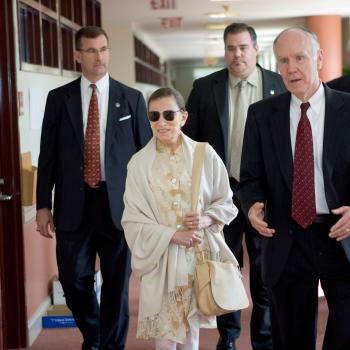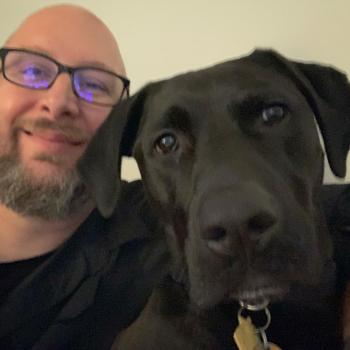I was once promoted to three-star general in the Australian Army, and Lord Viceroy of Sydney. I was once consigned to the pits of Hell. I have been Jesus, Hitler, a sex trafficker, a proctologist and the Kurgan. Once, I was told I knew and was unfairly withholding the kabbalistic secrets of the Gospel of Thomas that could bring about peace on Earth.
And that’s all just this past year.
When you work in behavioral health, you become intimately familiar with delusion. Is this patient “attending,” or talking to people who aren’t there? Does that patient believe supernatural forces are at work in their life? Does God speak to them? Is something evil and intangible trying to harm them?
Delusions aren’t necessarily good or bad things. We all have them on some level every time we wrap ourselves in our favorite TV show, or every time we pray. The question for people of faith who hold degrees in psychology and work with delusional patients then becomes, what separates me from them? What makes their gods any more delusional than mine?
. . .
When a judge or a provider is trying to discern whether or not a patient requires hospitalization, they ask themselves a series of questions. Is this person safe? Are others safe around them? Does this person’s condition prevent them from adequately functioning in the world? If someone believes they share their life with a six foot rabbit named Harvey, they are welcome to that belief, so long as it doesn’t substantially interfere with their lives or the lives of others. This is the line we draw to protect the individual’s right to live out their lives as they please, in freedom, comfort and dignity.
I believe that my god is real. I don’t necessarily picture God as Charlton Heston sitting on a cloud waiting to smite me for my transgressions—my image of God is more a benevolent force at work in the Universe—but still I have very little evidence beyond my faith to go on.
I also believe the god of some other Christians is false, because he (always a “he”) leads them to racism, homophobia, xenophobia, misogyny and many other hatreds and fears that I can’t reconcile with a living, loving theology of love and grace. If I’m being honest, though, I also have very little evidence other than my faith to go on here.
So how do I discern the difference? For me, it’s the same set of questions:
Is this person safe with their god, or does their god cause them to hate their own skin, desires, gender, orientation and so on?
Are others safe around them, or does their god lead them toward violence, discrimination, shame and blame?
Does this person’s god allow them to adequately function in the world, or are they so paralyzed by fear that they cannot become a fully self-actualized person of faith?
Christ was clear that all prophecy and law hangs on love of God and love of neighbor (Mt. 22:37-40). Paul boils down all of theology to the enduring presence of faith, hope and love (1 Cor. 13:8-13). God promised a new covenant (Jer. 31:31-34), fulfilled through Christ (Jn. 14:15-17), that is literally in us and with us, and enables us through its advocacy to see the truth:
God is love.
Anything less, or anything that leads Christians of any kind away from this simple, elegant and profound message, is not God. It is delusion, and dangerous at that.













